Every year, UW–Madison celebrates Latine Heritage Month from September 15 through October 15. It’s an opportunity to honor the ways in which Latine communities have contributed to and helped shape American society.
In honor of this celebratory month, we asked several Latine faculty and staff members their thoughts on culture, contributions, and achievements within the Latine community. We asked them to share their reflections with us.
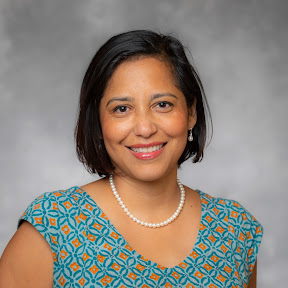
“Latine history and culture encompass rich pre-colonial civilizations, colonial struggles, mestizaje, and immigration – a complex history that has given rise to a tremendously diverse community. Our community has contributed to global culture through its music, dance, cuisine, and literature, and we have helped to advance and shape political and social movements.
At UW–Madison, we are part of the instructional, academic, administrative, and political fiber of our institution. Honoring Latine heritage means engaging with the complexity of our history and present to forge a future that is inclusive of our Latine diversity.
From supporting our Latine students and colleagues to reaching out and developing partnerships with our Latine communities as part of the Wisconsin Idea, we take steps toward that future.”
Mariana Castro, PhD
Qualitative Research Director
Multilingual Learning Research Center
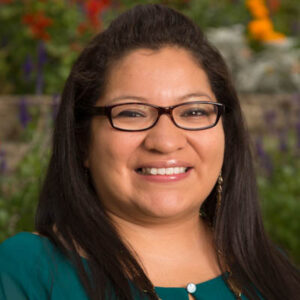 “I was fortunate to have earned a Certificate in the Chican@/Latin@ Studies program here when I was an undergrad. This was the first time I had the opportunity to learn about my Latine history (i.e., maquiladora on the US-Mexico border, Chicano Movement, Latinas in the media, etc.).
“I was fortunate to have earned a Certificate in the Chican@/Latin@ Studies program here when I was an undergrad. This was the first time I had the opportunity to learn about my Latine history (i.e., maquiladora on the US-Mexico border, Chicano Movement, Latinas in the media, etc.).
One way for our UW–Madison community to respect our Latine community is understanding our diverse diaspora of ethnic groups within our comunidad. While there may be a shared Spanish language among many Latine communities, we have vast and distinct cultural differences that make our community beautiful and unique.
I used this book when I taught last semester, ‘Cultural Foundations and Interventions in Latino/a Mental Health,’ that emphasizes the racial and ethnic diversity within our heterogeneous cultural group. I highly recommend this book for anyone wanting to increase their cultural competency serving and working with the Latine community.”
Marla Delgado-Guerrero, PhD
Director
Posse
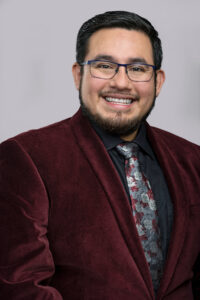
“Latine history is about uncovering deep, often untold truths and recognizing that there is no one way to be Latino. Like a woven basket, our diverse stories and vibrant colors come together in strength and unity.
A great resource to explore Latinas’ impact in Wisconsin is the Somos Latina Oral History Project. Personally, as a high school PEOPLE student, I had the chance to watch Walk Out, a powerful docudrama on the Chicano student protests. This deepened my own understanding of movements and the importance of education.”
Arturo Diaz
Kemper Foundation Director
Wisconsin School of Business Multicultural Center
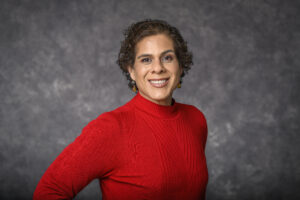
“Everyone should know the work of late Chicana Feminist Gloria Anzaldua. Her revolutionary mestiza consciousness work continues to inform new ways of knowing, being, and transforming our understanding of identity and sense of belonging. The mestiza consciousness speaks to a hybrid existence, never really belonging in one world but rather navigating multiple worlds, multiple realities, and that in the spaces of in-betweenness exists an opportunity to find healing, light, and triumph.
Many of us exist in these in-between spaces. Understanding the beauty of this reality has been central to my own healing and thriving.”
Fernie Rodriguez, PhD
Associate Vice Chancellor
Student Affairs Identity and Inclusion
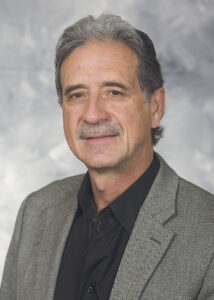
“The Latine community enriches UW–Madison and society in general through the vibrancy of its culture and its commitment to share it. For example, the Latin American, Caribbean, and Iberian Studies (LACIS) program on campus offers free weekly lectures, film series, and multiple activities.
Please visit our website (lacis.wisc.edu) and sign up for our events and resources. As an immigrant myself I am proud to share our culture with Madison, Wisconsin, and beyond.”
Alberto Vargas, PhD
Associate Director
Latin American, Caribbean and Iberian Studies
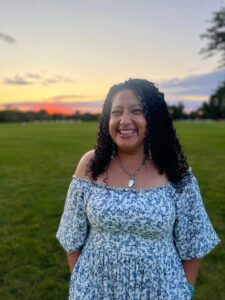
“We come from a myriad of different countries. We don’t all look alike, eat the same foods, or think alike. There is so much rich and beautiful diversity among our people. Due to colonialism, most of us are a mixture of different races. Many of us have African, Indigenous, and European ancestry, and we are proud of that mixture, which makes us who we are.
Family, food, and faith bring us together. Our love and commitment to family runs deep. While our food is diverse, from pupusas to llapingachos, to tejadas, to mofongo, to ropa vieja, to tamales, you can taste the essence of our love in the foods we prepare. And we are people of faith. We believe in the impossible. We leave our countries of origin and cross an ocean, and without speaking the language or having a dime to our names, we trust that we will thrive. ”
Music recommendations – Bemba Colora | El Falorito | Chan Chan
Joselyn Diaz-Valdes
Associate Director of Advising & Outreach
Bucky’s Pell Pathway & BANNER